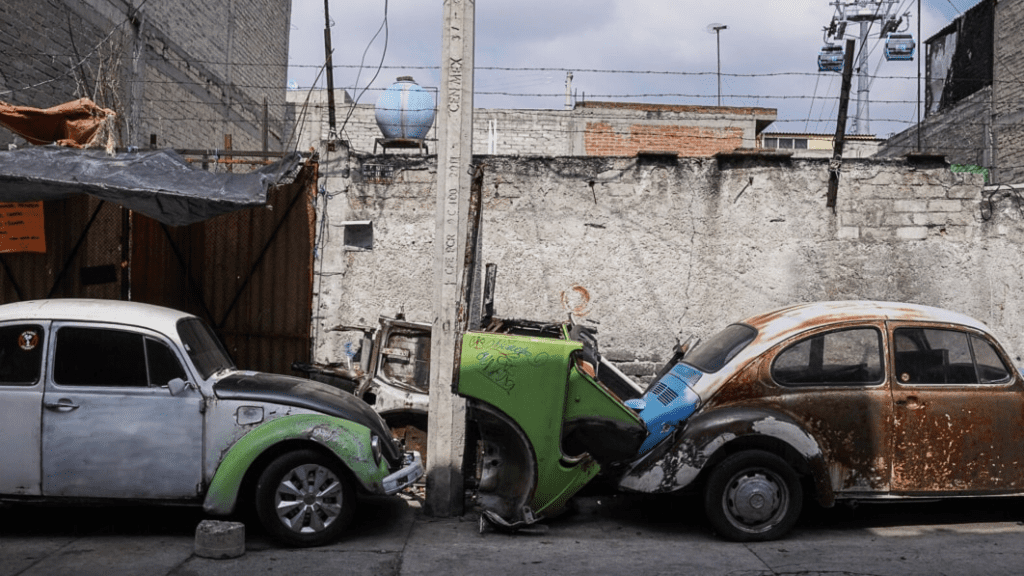Read This: In Mexico City, a decades-long love affair with the Beetle

In neighborhoods just north of Mexico City, the Volkswagen Beetle—the old Volkswagen Beetle—represents more than transportation; it’s a lifestyle choice.
Out of series production for 20 years (although it was succeeded for a time by a much more modern New Beetle), the classic version lives on in select places. A vibrant words-and-pictures essay in The New York Times, titled “In This Mexican Neighborhood, Locals Say ¡Viva el Beetle!”, celebrates the many ways that residents of Cuautepec in Mexico’s capital have embraced the classic Bug.
Perhaps it has something to do with the fact that in 2003 the last Beetle rolled off the assembly line in Mexico, in Puebla, which had opened in 1964 and was long an object of pride for the Mexican people.
The cars are often passed down generations, and they’re giver pop-art color schemes and a bunch of affectionate nicknames. The most popular one is “Vocho.” The story says that “some say it is derived from the Spanish word for bug, “bicho,” and combined the first two letters of Volkswagen. Others say it is just a shortened slang version of Volkswagen.”
Quoted in the story is Álea M. Lozada, a spokeswoman for Volkswagen in Mexico, who says, “Our beloved Vocho has become part of the Mexican folklore thanks to its unique personality, quality, and reliability. It is a honor to be the last plant in which this iconic model was assembled.”
Personality aside, the Bug’s mechanical qualities are a matter of practicality in the hilly neighborhood. The Times points out that the Beetle’s engine is in the back rather than the front, “making it easier to drive up Cuautepec’s steep hills. The cars marked with green and white paint are still used as unofficial taxis in the neighborhood.”
And finding replacement parts to service the Beetles—most are quite old and have accumulated high mileage—can be an issue. The cars are often made up of mismatching colored parts, writes the article’s author, Zolan Kanno-Youngs. “One Beetle might have a green hood, a blue passenger door and a yellow trunk — signs of past repair jobs and an effort to match the vibrant houses in the neighborhood.”
Imagine drag racing a VW from the Sixties. According to the report, Mario Gamboa and his brother in Mexico City operate a shop that “outfit the cars with more powerful engines and shiny, new exteriors for drag racing events in the city.” His family owns 15 Beetles.
“All the people in Mexico learn to drive in a Volkswagen,” Mr. Gamboa told the Times. “All the families have a Volkswagen. If you don’t have a Volkswagen, then maybe your uncle or your cousin or your grandma does.”
The story is available here. A subscription may be required.



